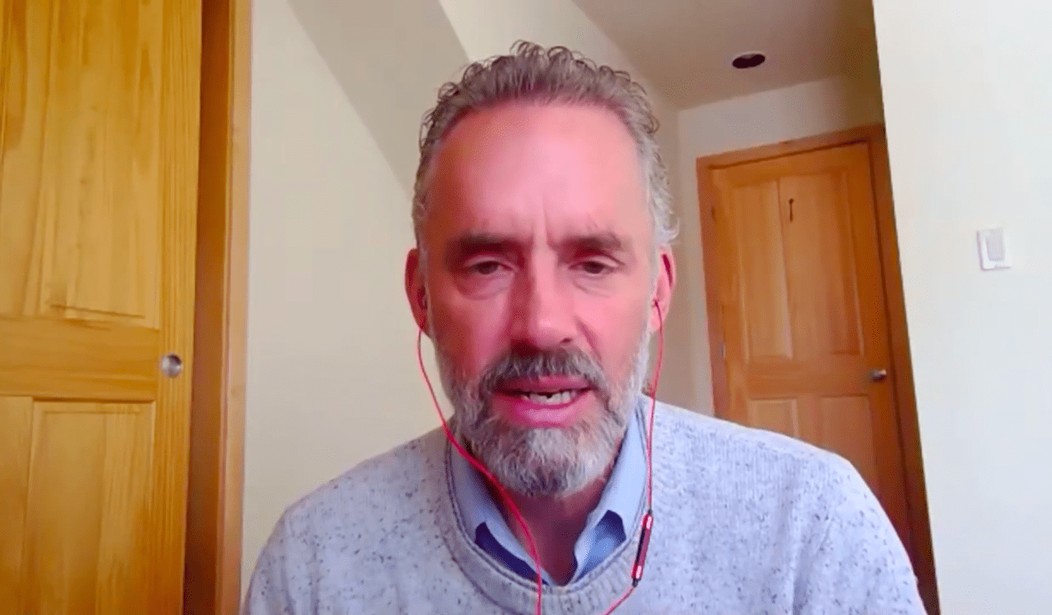On Tuesday, Canadian psychologist Jordan Peterson and talk show host Dave Rubin announced that they would both be leaving the donation processing platform Patreon, citing key free speech and censorship issues related to credit card companies and the Southern Poverty Law Center (SPLC). They also mentioned Patreon’s attack on JihadWatch founder Robert Spencer. Together, they account for slightly less than 8,000 patrons.
Peterson, best-selling author of 12 Rules for Life: An Antidote to Chaos, decried “the emergence of this activist infrastructure online that’s devoted specifically to the destruction of free speech.” Rubin, host of The Rubin Report, called the situation “a Pandora’s Box from hell.”
Both will be leaving Patreon, a platform that enables users to support artists and various content creators like traditional patrons, on January 15.
“By the way, we should just be clear, this is not something we wanted to do,” Rubin explained in the video announcement. “We’ve both been perfectly happy on Patreon,” he added, noting that “somewhere between 60 and 70 percent of our funding is through Patreon.”
“I’d like to thank the Patreon people for what they did in the past, because they provided me with the opportunity to generate a tremendous amount of financial support at a time I really needed it, and so I’m not happy in the least with what has happened,” Peterson added.
However, “given Patreon’s proclivity to censor and the reasons that they’re doing it, especially as I’ve looked more and more deeply into the reasons, particularly with regards to my discovery of the website Change the Terms, I’ve become increasingly convinced that it’s unethical to continue my association with the company,” the psychologist said.
The “Change the Terms” coalition involves the SPLC and other liberal groups (mostly funded in part by George Soros’s Open Society Foundations) demanding that Big Tech companies alter their terms of service to exclude “hate speech.” Mat Staver, founder and chairman of the Christian legal nonprofit Liberty Counsel (falsely branded a “hate group” by the SPLC), called this effort “Orwellian.”
As Peterson explained, “that Change the Terms website, that a whole variety of companies and organizations spearheaded not least by the Southern Poverty Law Center, that hateful organization, [involves a coalition] that has decided they are going to compel, encourage, defame perhaps companies that don’t band together to regulate what they see as hate speech.”
The psychologist admitted that some desire to censor speech on the internet is understandable. “For example, the desire of companies like Facebook not to have their platforms used for recruitment for ISIS. It’s hard to make a case that that’s not a reasonable restriction. … Maybe you consider that a ‘wartime exception.'”
But “Change the Terms” defines “hate speech” in a politically expansive way. The SPLC brands mainstream conservative and Christian groups “hate groups,” and even went after Muslim reformer Maajid Nawaz as an “anti-Islamic extremist.” When Nawaz sued, the SPLC settled the defamation suit, paying his organization $3.375 million. This encouraged about 60 organizations to consider separate defamation lawsuits.
Rubin mentioned this history, arguing that the SPLC “cannot be trusted to be on the boards of any of these organizations that are deciding the terms of service … it’s about who should have access to the internet.”
Rubin and Peterson referenced a New York Times article attacking credit card companies for allowing people who ended up committing mass shootings to use their services. This may sound reasonable at first, but it amounts to a call for surveillance and monitoring on a massive scale.
“The idea is that the companies to whom we have entrusted our monetary system… now get to review our spending patterns to determine if what we purchase is in accordance with what they regard as morally acceptable,” Peterson explained. “That’s where we’re headed.”
When Patreon booted Robert Spencer from the platform last year, it claimed Mastercard demanded his removal. “They said that they ‘unfortunately’ had to delete his Patreon because of Mastercard. That is some deeply scary stuff,” Rubin said.
As of December 2018, Peterson had the 44th largest account on Patreon, with 5,300 patrons, while Rubin had the 199th largest account with 2,300. Their exodus comes shortly after best-selling author Sam Harris left the platform, closing the 11th largest account.
Follow the author of this article on Twitter at @Tyler2ONeil.









Join the conversation as a VIP Member